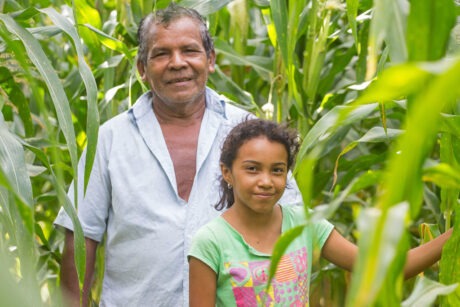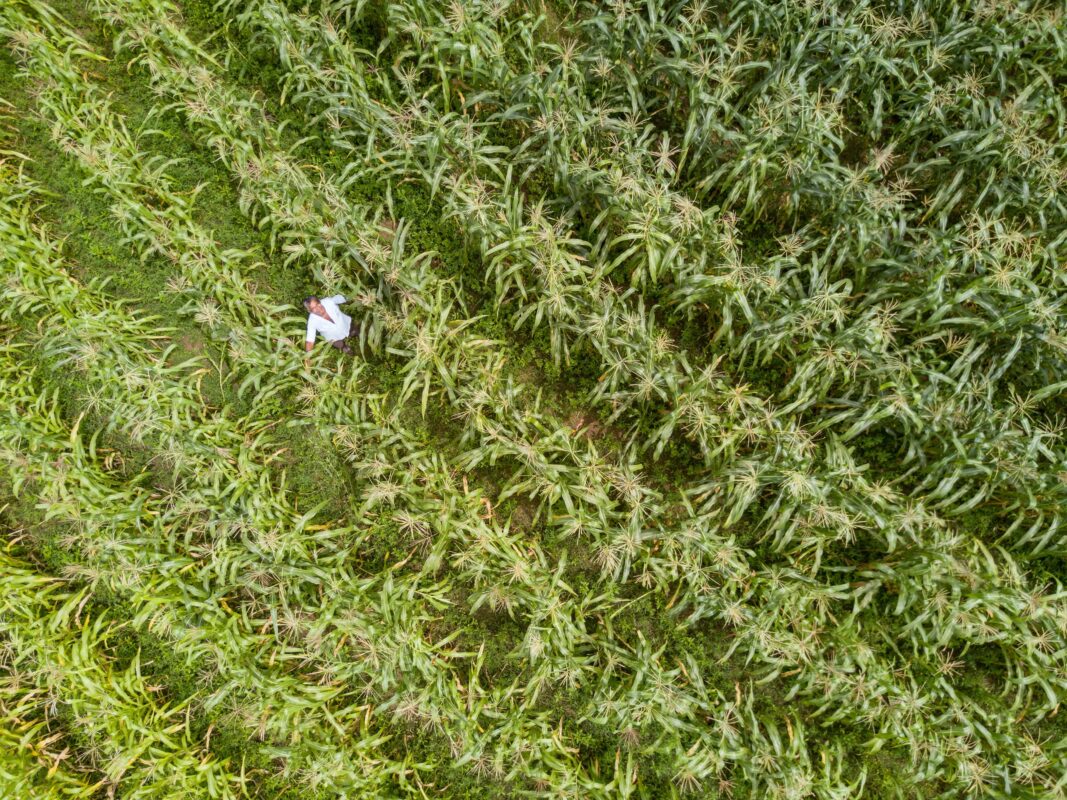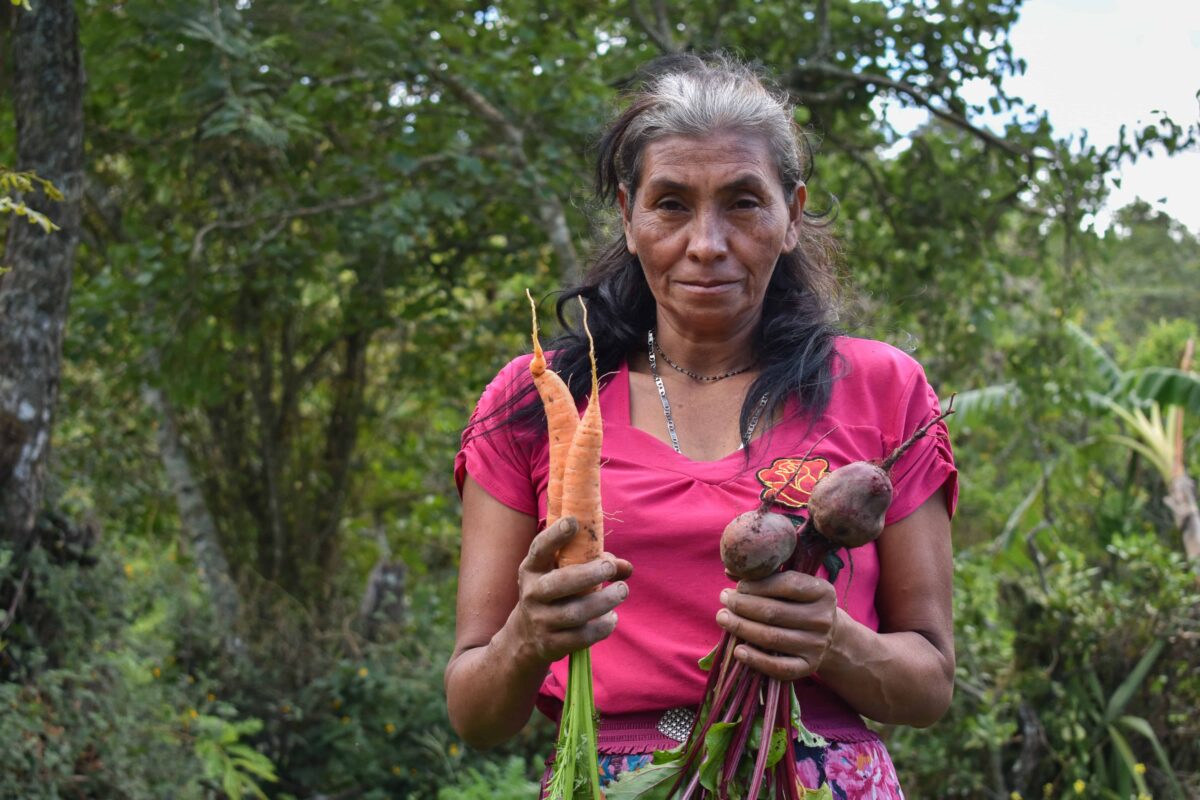Extended periods of drought and flooding this year in the Dry Corridor of Honduras have left many farmers with ruined crops, created dangerous food insecurity and loss of income.
Swings in weather are common in this region of southern Honduras – but this year’s erratic weather was harsher than usual. Some of those hardest-hit live in the area supported by the Dry Corridor Alliance – PROSASUR programa, que trabalha com as famílias para aumentar a renda, reforçar a segurança alimentar e melhorar a saúde e a nutrição em 6,000 famílias.
Because of the year-round warmth in Honduras, farmers have traditionally planted crops twice a year – once in May and a second time beginning in August, a planting period known as the “postrera.” This year was different.
Em 2018, both rounds of crops were hit by extreme weather, explains Rimen Martínez of the Dry Corridor Alliance – PROSASUR program, who monitors environmental issues and climate changes.
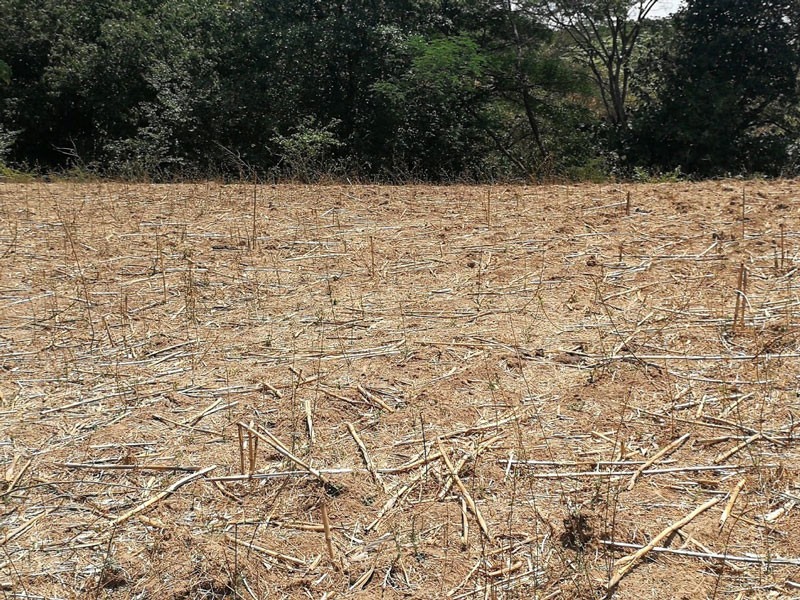
Martínez says that traditionally, the rainy season begins in early May, giving farmers much-needed water for their newly planted crops to last through a week-long drought period in June, known as the “canícula.”
“But this year, it didn’t happen that way,” Martínez says. “Everyone was traditionally waiting for the rains on Día de la Cruz (Poderia 3), and they didn’t come. The canícula lasted almost 30 dias. Many families’ crops dried up, and drought brought hunger. The crops grown during this time of year are a crucial source of food for many.”
And when Tropical Storm Michael, which later evolved into a Category 4 hurricane, hit in October, flooding soaked farmers’ plots in the south and sent massive amounts of water rushing through the streets in the country’s capital of Tegucigalpa and many other cities.
For Martínez, this doubly damaging year for farmers is further evidence of a weather cycle that has been pushed off track by climate change.
“What we’re seeing is a distortion in the cycles of nature,”ele diz. “These used to occur every 20 ou 25 anos, but now it’s happening more often.”
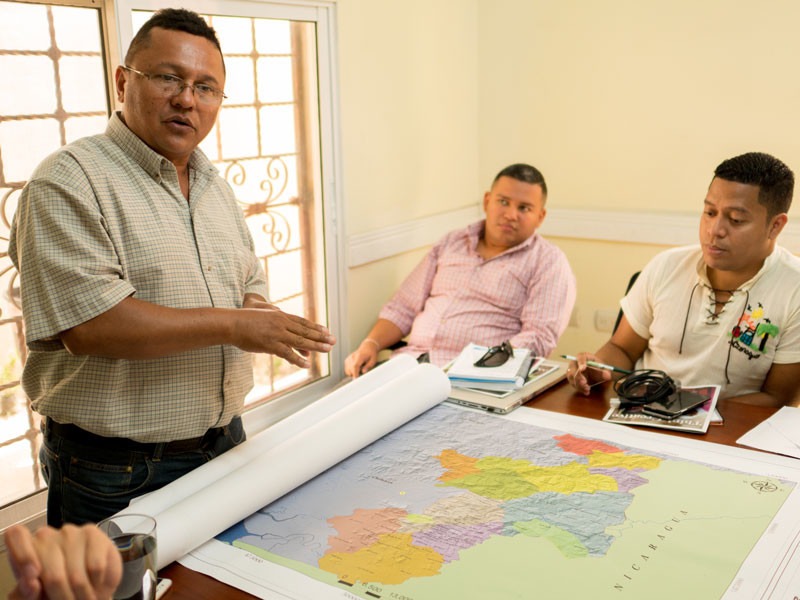
Building resilience for farmers
Edgardo Varela, Coordinator of Income Generation and Agricultural Production for the Dry Corridor Alliance – PROSASUR project, estimates that about 10 por cento do 2,500 farmers involved in the program lost their crops as a result of the drought and flooding. Por sua vez, food insecurity caused by destroyed crops can drive not only serious health issues and stunted growth in children, but also migration to other parts of Honduras or outside the country.
This year’s losses from extreme weather underscore the importance of the program’s goal to build farmers’ ability to withstand climate fragility and improve farming practices.
Por exemplo, to cope with the dry season, the agricultural technicians of the project are helping farmers install water harvesting and drip irrigation systems that can keep crops healthy using rainwater collected and stored during the rainy season.
The technicians are also working with farmers to plant more strategically – such as growing sorghum instead of corn during the fall season because it is more resistant to drought. And to combat flood damage, farmers are raising crop beds higher off the ground, a practice that helped protect some farmers’ harvests during this year’s floods.
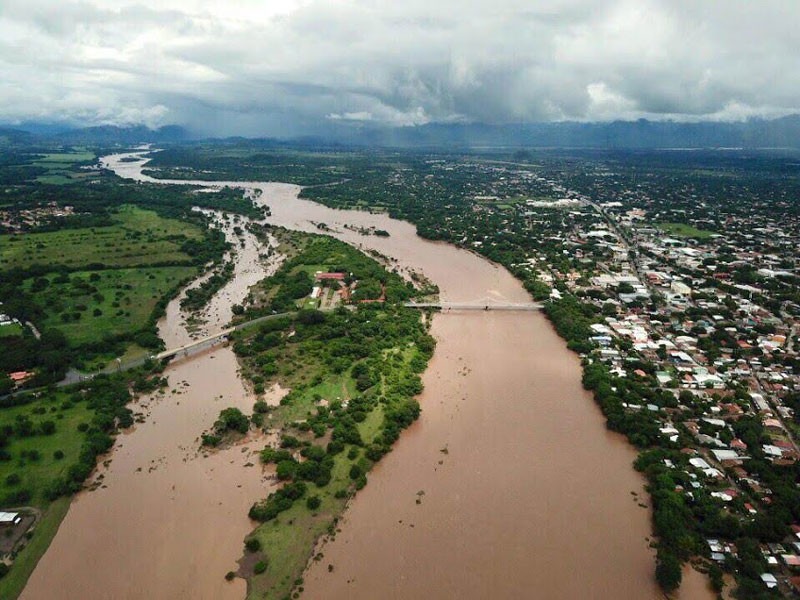
These and other initiatives are part of a $6.5 million investment by the program in developing household and community plans in both agricultural and non-agricultural business, nutrition and hygiene that will raise incomes and improve health.
Dry Corridor Alliance – PROSASUR Chief of Party Carlos Ruiz says that building resilience is ultimately at the heart of his project and essential to help farmers have healthy harvests in the future.
“The fragility of the context makes supporting the poorest and most vulnerable households in the Dry Corridor a joint responsibility,”ele diz. “That’s why we’re not only training families in good agricultural and health practices, but also strengthening community leadership and providing guidance to local governments and other actors to mitigate the impact of climate change.”
The Dry Corridor Alliance – PROSASUR program’s Cluster 2 is implemented by Creative Associates International in partnership with INVEST-Honduras and funded by the World Bank through the Programa Global de Agricultura e Segurança Alimentar.
